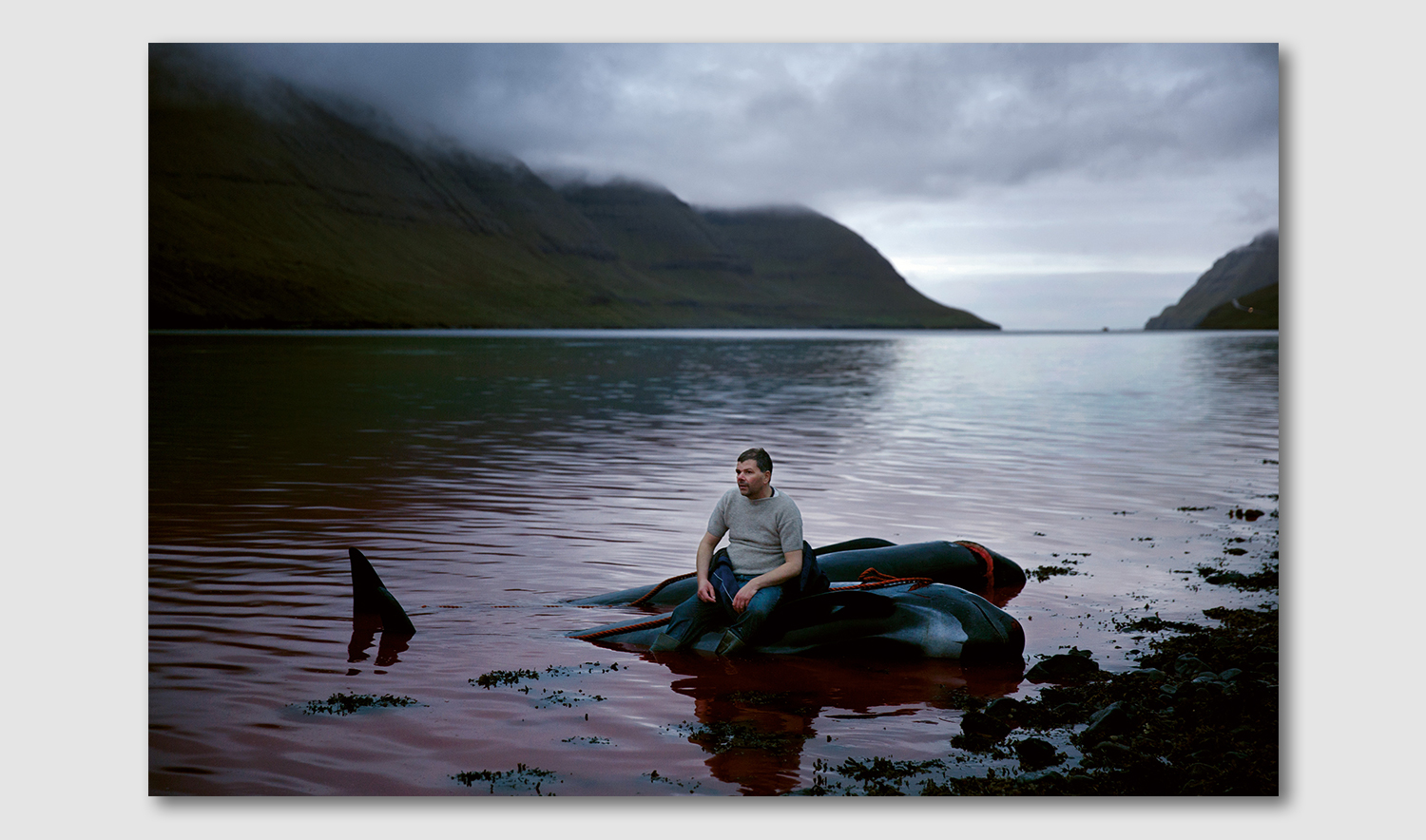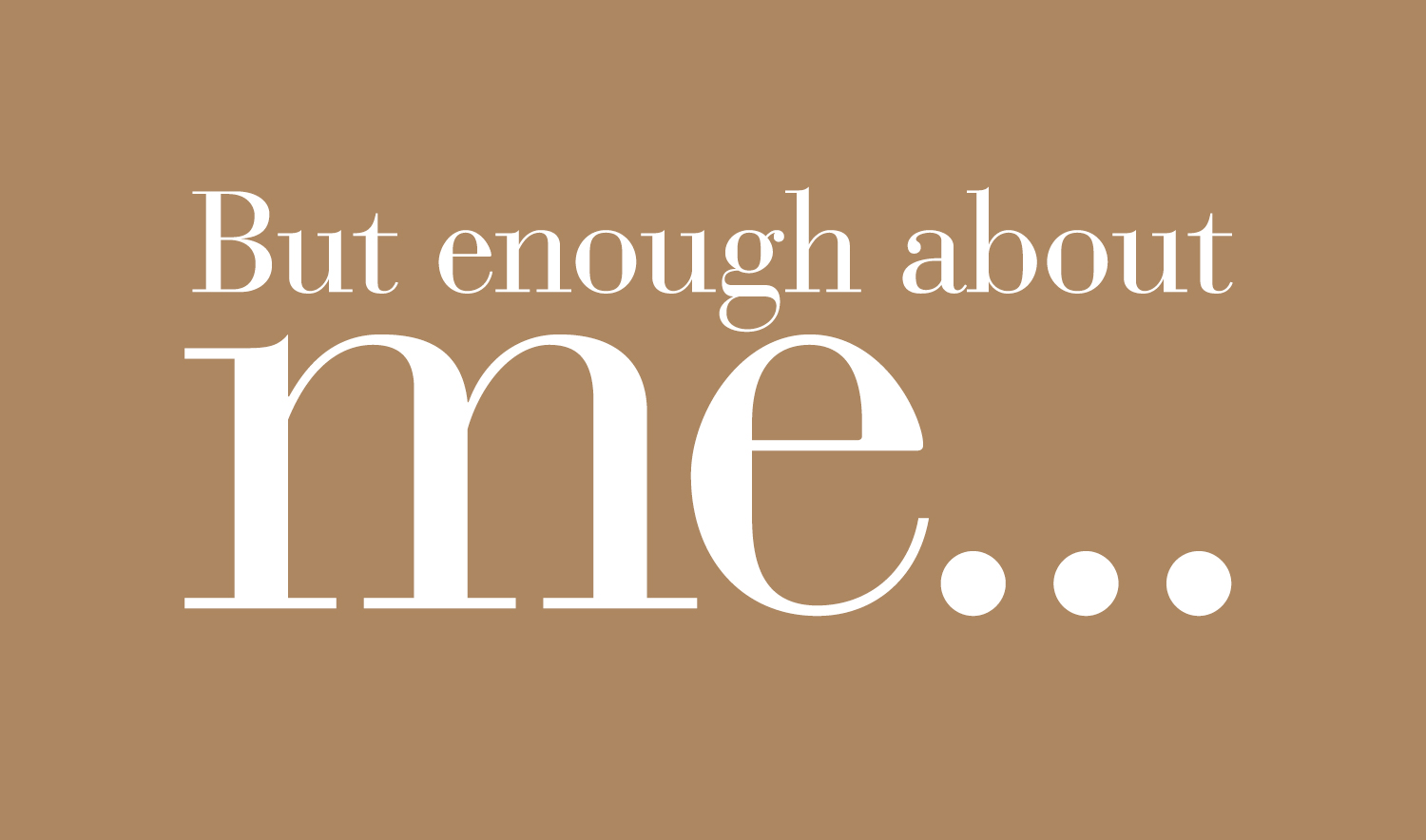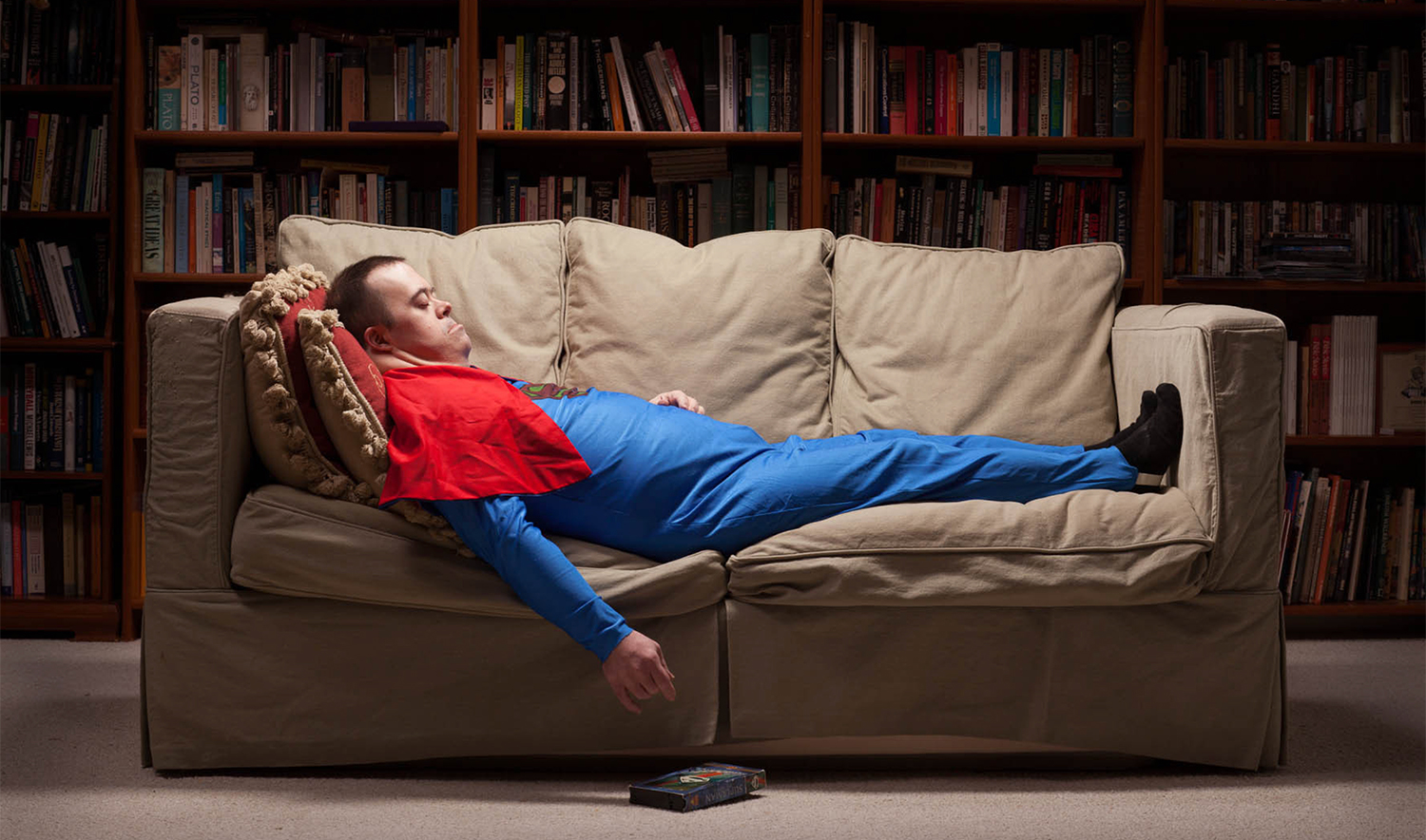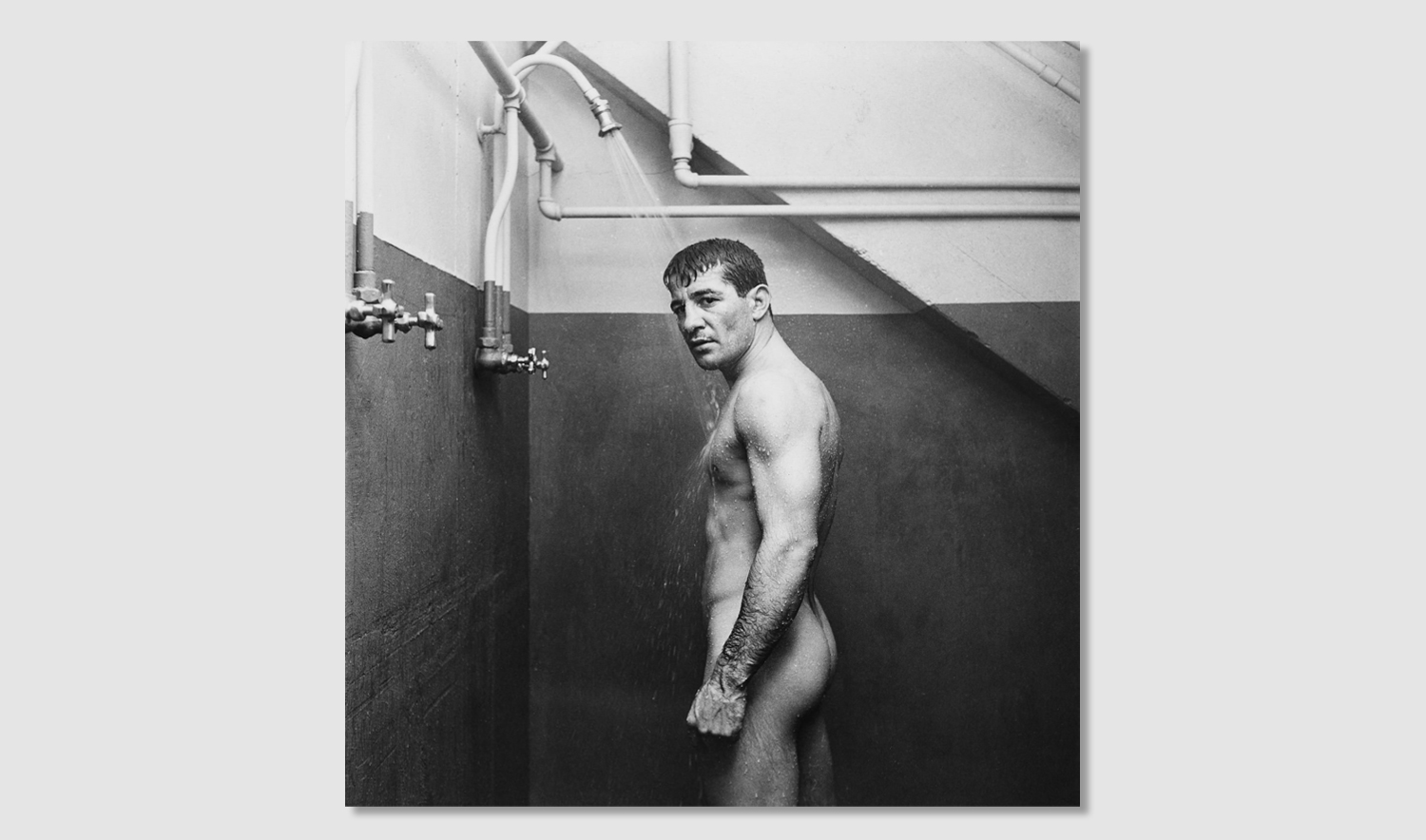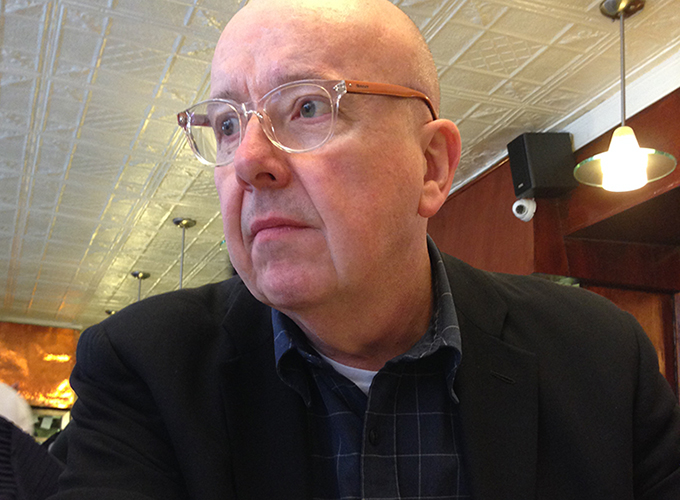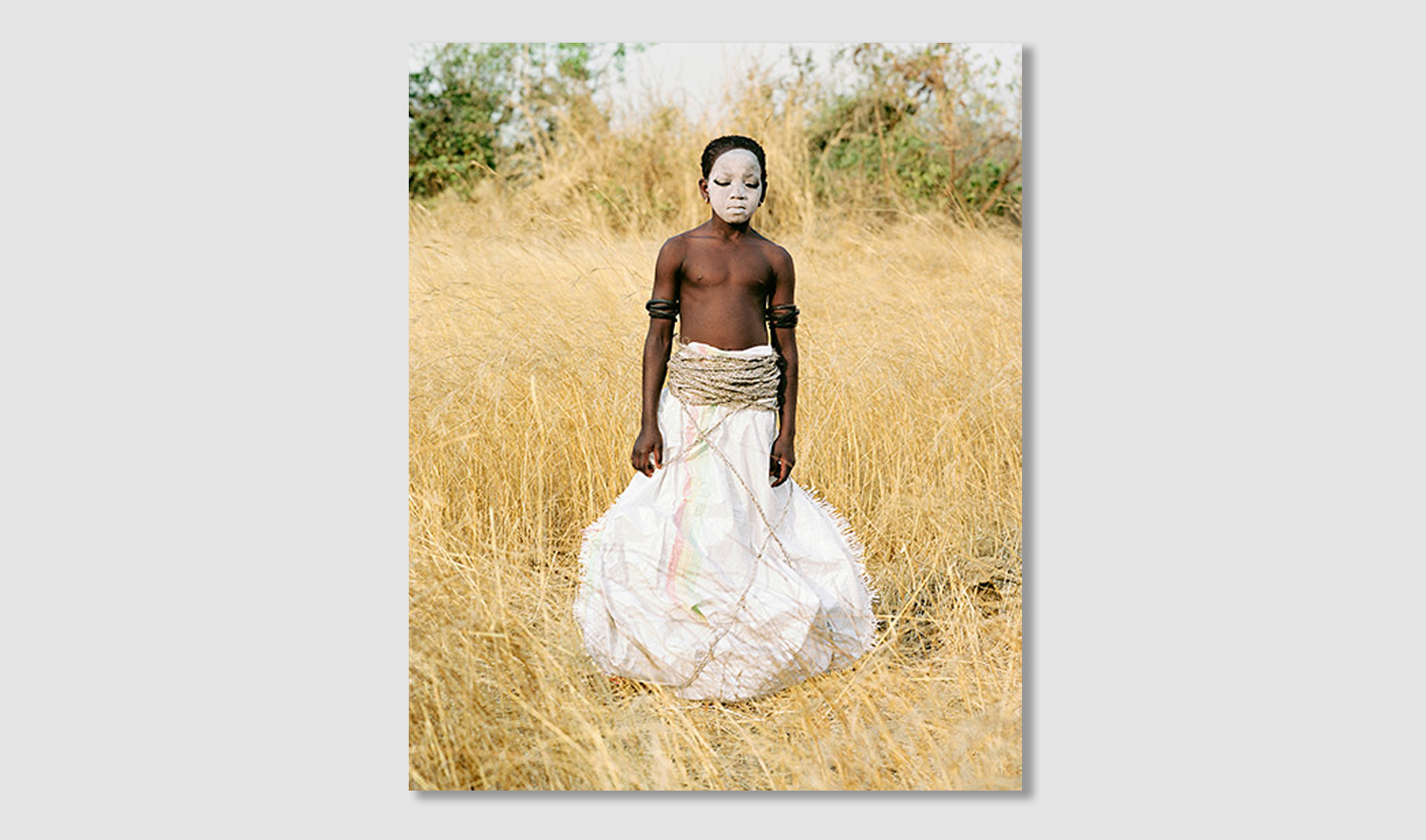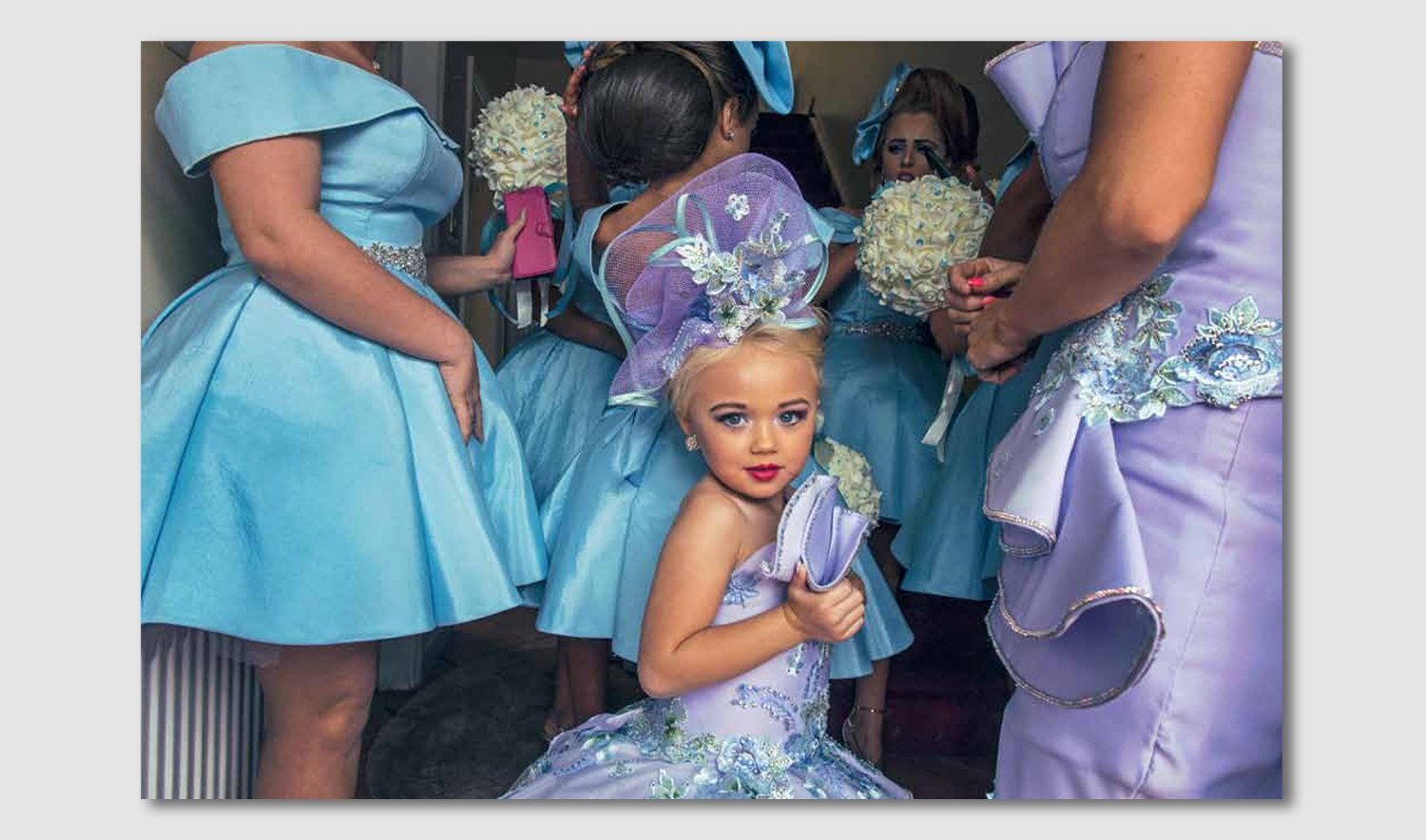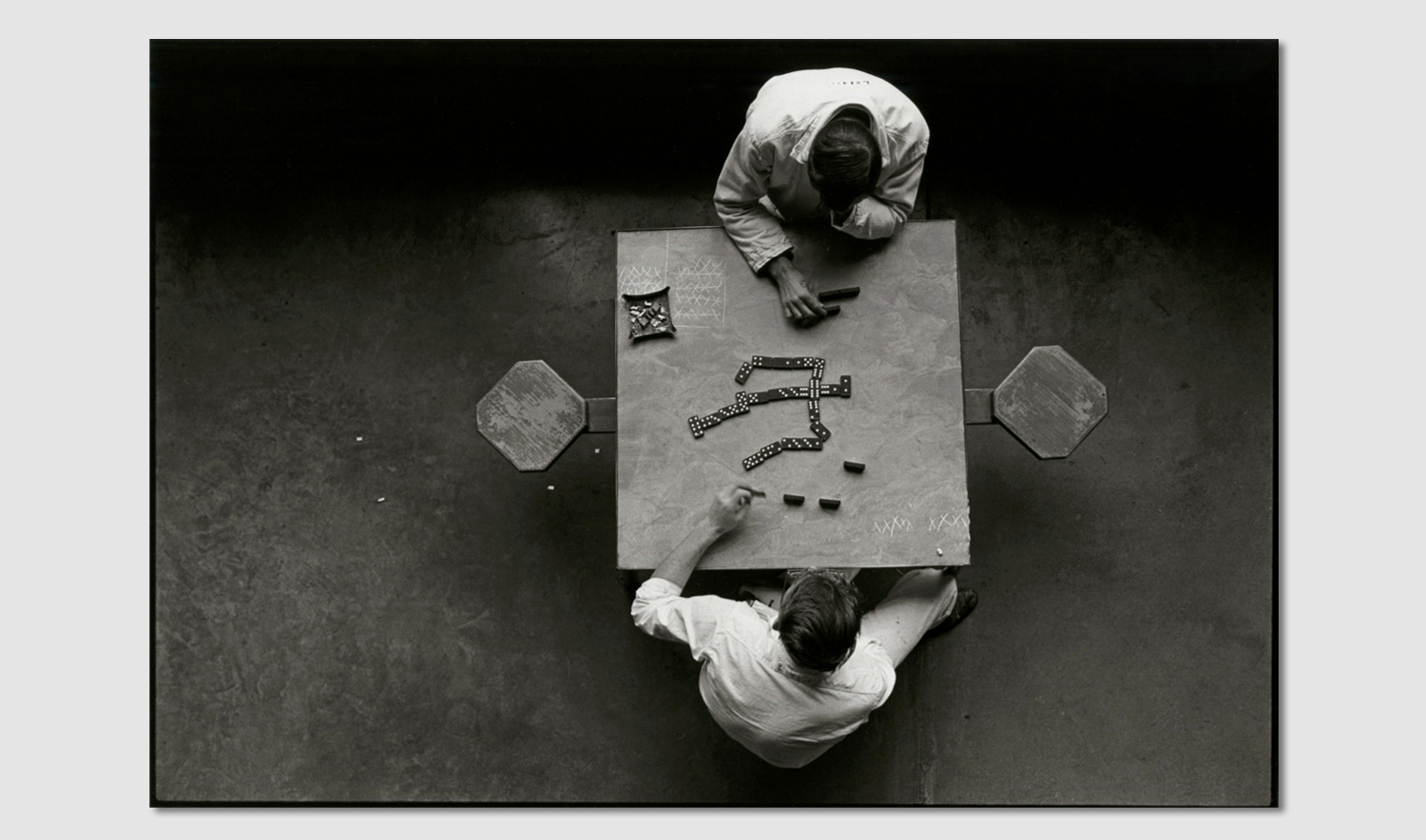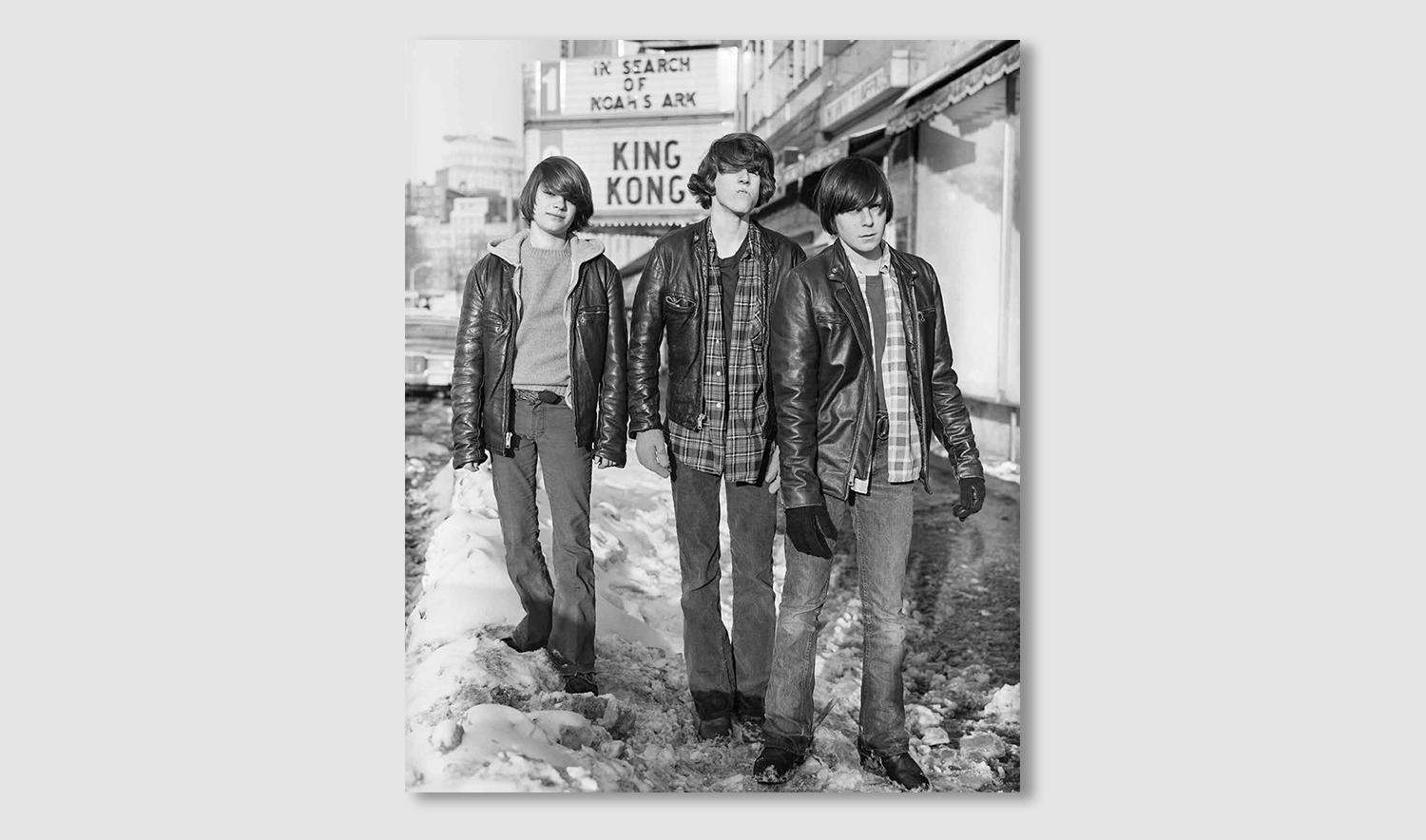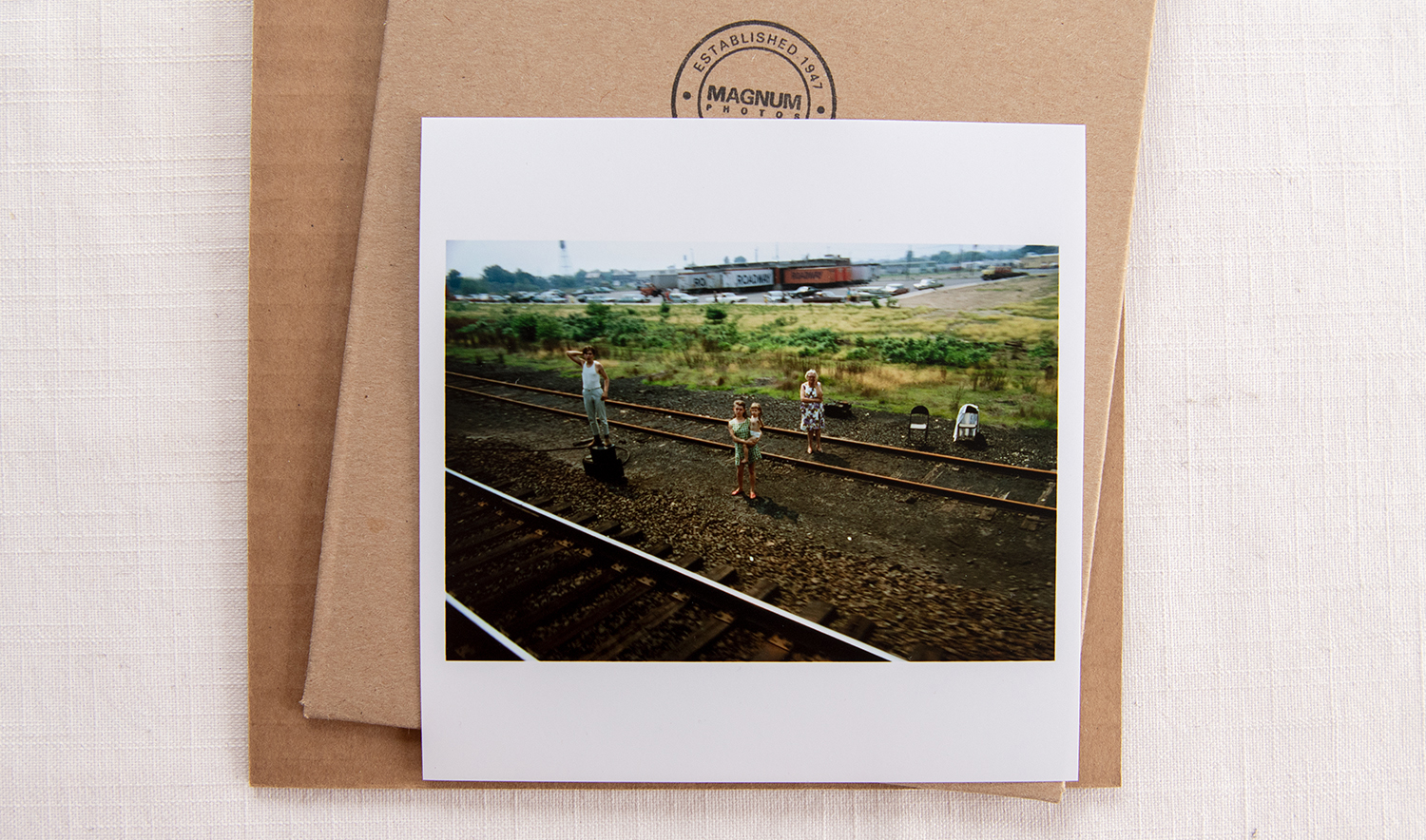The facts:
Andrea Gjestvang
Atlantic Cowboy
Text by Firouz Gaini
Published by Gost
82 images Hardback
Images top to bottom:
Rogni (26) and Odin (25) in the hot tub at around midnight in Mykines, the westernmost island in the Faroes. The island has between five and ten permanent inhabitants, but it is invaded each summer by tourists eager to experience its unique birdlife. © Andrea Gjestvang
Hjalmar, his shirt stained with blood during sheep slaughtering on a farm in Kaldbaksbotnur. © Andrea Gjestvang
Fróði rests on a slaughtered whale during a grindadráp in Hvannasund, Faroe Islands. Grindadráp, the pilot whale hunt, is a tradition and part of the Faroese cultural identity. When fishing was poor, as in the 1930s, the pilot whale was what saved people from famine. Nowadays, whale is no longer part of the staple diet. © Andrea Gjestvang
Fróði rests on a slaughtered whale during a grindadráp in Hvannasund, Faroe Islands. Grindadráp, the pilot whale hunt, is a tradition and part of the Faroese cultural identity. When fishing was poor, as in the 1930s, the pilot whale was what saved people from famine. Nowadays, whale is no longer part of the staple diet. © Andrea Gjestvang
A young boy looks out of a window while travelling on the ferry that takes passengers between the capital Torshavn and the southernmost island Suduroy. © Andrea Gjestvang
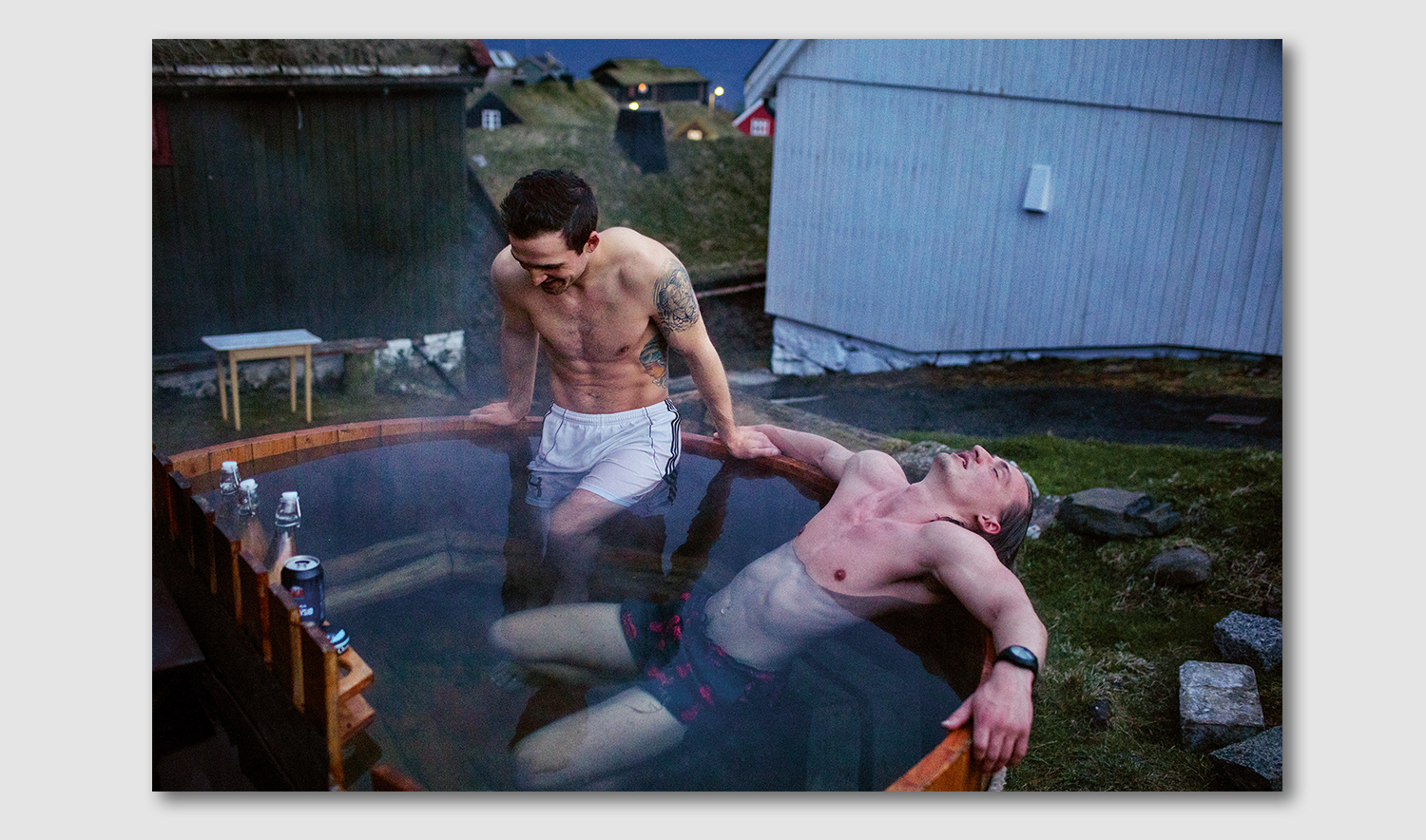
Andrea Gjestvang spent six years photographing on the Faroe Islands documenting the men who are referred to as “Atlantic Cowboys”, men who live in a primarily male society making a very demanding living off the sea and the land.
From the press release:
Photographer Andrea Gjestvang journeyed to the Faroe Islands to document the impact of a shortage of women on the territory. Her project, created over 6-years, depicts the traditional man—the Atlantic Cowboy—and the geographical and social periphery he inhabits.
The Faroe Islands, a territory of the Kingdom of Denmark, are located 320 kilometers north- northwest of Scotland, and about halfway between Norway and Iceland. The landscape is as breath-taking as it is harsh. Fishing is the main industry of the territory and although it has modernised in many ways, it is still an industry bound by tradition and mainly run by men. Whilst the men go to sea, the young women are drawn abroad for study or training in Copenhagen or other European cities. More than half of those who leave never return and as a result the population of 54,000 has a gender deficit of around 2000 women—the deficit is 10% among women of reproductive age.
Gjestvang was intrigued by how the demographic trend had challenged and changed both Faroese society and the men who chose to stay—this became the backbone of her project. She was curious about the lives of unmarried men in small communities where the impact was most pronounced. Although the project focuses on the Faroe Islands, the trend is symptomatic of what is happening across many other rural areas of Europe and across the world. Atlantic Cowboy provides an insight into how traditional male roles and identity are being challenged by modern society.
The photographs in the book depict the vastness of the land, sky and seascape against which the human presence in dwarfed. They show the domestic interiors and family units, birds being processed and sheep being slaughtered, social celebrations, men at sea, hot tubs and hours of physical graft. These details reveal the harshness of life in the territory alongside steadfast endurance, companionship and community.
Man was, so to speak, too important and irreplaceable in the role of the ‘hunter’ struggling for the survival of his family and community to be assigned a special position at home. He was a fisher, a whaler, a fowler, a beachcomber, a sheep-breeder, a harvester, a boat builder, a storyteller and many more things at the same time. His performance was not a manifestation of masculinity, but rather an element of the unpretentious way of the islanders of the North...Now, I can just affirm that present-day Faroese...is very different from the society of the late twentieth century. It is not easy to lead the slow and simple way of life of the villages anymore. Things are getting more complex and unpredictable. The ‘pliable men’ are adapting to new societal demands and expectations, but not without resistance.
- Firouz Gaini, Associate Professor of Anthropology at the University of the Faroe Islands
Images and information about the book are below.

